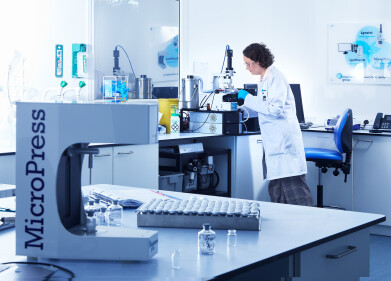Laboratory Products
Is There Any Point in Vitamin D Supplements?
Mar 01 2019
For around a decade or so, vitamin D has been seen as the ‘superman’ of supplements, with research connecting the vitamin to lower cancer risk, asthma protection and reduced blood pressure. The pharmaceuticals industry – which is currently developing new methods of drug delivery using nanoparticles – has seen a surge in supplement sales.
But what exactly do vitamin D supplements do for our body and health? Are they as effective as we think? And is there even any point in taking them? Keep reading to learn more.
Shining a light on vitamin D
Our bodies produce vitamin D when exposed to ultraviolet light. The nutrient can also be absorbed from food in small amounts. Once the vitamin enters the bloodstream, it is transformed into a hormone that helps bone strength. It’s almost universally accepted that vitamin D is a necessity for our bodies to survive and thrive.
Without it, we are at risk of weakened bones. Vitamin D deficiency is even the cause of the historical childhood disease ‘rickets’. Until the early 1900s in the UK, rickets was a common disease, affecting children of all backgrounds and ages. It wasn’t until 1919 that a German doctor proved that rickets could be treated through ultraviolet light exposure. While the sunlight itself didn’t cure the disease, the vitamin D produced by the exposure strengthened the bones of patients.
Since then, vitamin D has been fortified into a number of foods and sunlight exposure has been encouraged for people of all ages. Studies started to appear, testing the link between certain diseases and sun exposure and theories arose that vitamin D could prevent or help to prevent certain diseases, including breast cancer and even premature death.
But, while we remain confident that everyone needs natural vitamin D in their body, it’s a bit less clear whether the average person should be taking a supplement.
Vitamin D studies
There have been a number of studies conducted to test the effect of vitamin D supplements on our bodies and whether they can reduce the risk of certain diseases. However, Steven Abrams, a University of Texas paediatrician, points out that “people tended to glom on to positive results because they wanted them to be true. Negative studies were buried, harder to find”.
A study in 2017 found that there was no difference in cancer risk in postmenopausal women who took vitamin D and calcium supplements and those taking a placebo. A further study in 2018 found that higher levels of vitamin D were even somewhat associated with an increased risk of prostate cancer.
More research is needed to firmly conclude a link between improved health and vitamin D consumption, but for now, listen to your doctor and only take supplements if advised to do so.
Digital Edition
ILM 49.5 July
July 2024
Chromatography Articles - Understanding PFAS: Analysis and Implications Mass Spectrometry & Spectroscopy Articles - MS detection of Alzheimer’s blood-based biomarkers LIMS - Essent...
View all digital editions
Events
ACS National Meeting - Fall 2024
Aug 18 2024 Denver, CO, USA
Aug 25 2024 Copenhagen, Denmark
Aug 28 2024 Phnom Penh, Cambodia
Sep 04 2024 Chiba, Tokyo, Japan
Sep 04 2024 University of Warwick, Coventry, UK


















